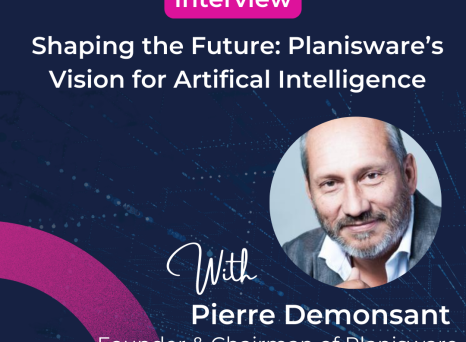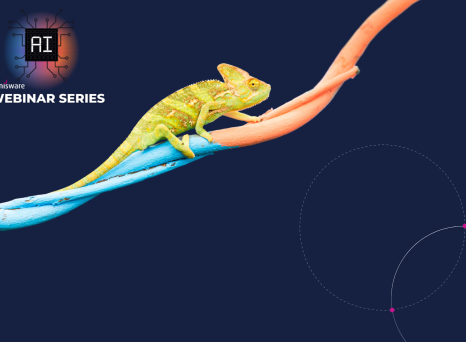AI (Artificial Intelligence) will reinvent project, programme, and portfolio management.
A bold statement I realise but it is not one that I alone believe in.
Gartner states that by 2030 - so we are not talking too far ahead, only 8 years - 80% of the work of today's project managers will be eliminated as AI takes on functions such as data collection, tracking, reporting, analytics, and predictive analysis.
80% of what you do as a project manager today, or what your project managers do for you, if you are head of a PMO or head of a programme, or project practice, 80% of that work will just not be there anymore, it will be eliminated because AI will take it on and deal with it, and deal with it no doubt in a very consistent and better manner.
Why AI and why now?
According to PwC ‘AI could contribute up to $15.7 trillion to the global economy in 2030, more than the current output of China and India combined. Of this, $6.6 trillion is likely to come from increased productivity and $9.1 trillion is likely to come from consumption-side effects.'
Our profession will naturally be drawn into this AI revolution, for example, Sunil Prashara, President & CEO at Project Management Institute stated, “Our world is undergoing massive disruption. From COVID-19 to equality movements to AI going mainstream, tectonic shifts are causing upheaval and shaping the future. Project professionals are well-positioned to turn these challenges into positive change.”
And this is just the start. Forbes notes, in an article ‘AI in Project Management , ‘Ever since humans have had people and projects to manage, we've had challenges keeping the projects on time, on budget, and people on task. The field and industry of project management emerged as a way to manage a collection of people towards an end goal. For project managers, it is commonplace to be managing not only multiple teams, but also multiple projects at the same time. … Artificial intelligence is increasingly finding its way into project management tools and technology to handle everything from scheduling to analyzing the patterns of a working team and offering suggestions. These augmented tools make AI an obvious benefit to project managers going forward.
The rise of the machines
If the immediate thought, or perhaps image, that comes to mind is that of ‘Terminator' or ‘Skynet' then you can rest easy. We are a long way off that futuristic scenario, but changes are coming, and coming fast.
The history of Artificial Intelligence (AI) began, arguably, in antiquity, with myths, stories and rumours of artificial beings endowed with intelligence or consciousness by master craftsmen.
Thousands of years before machine learning and self-driving cars became reality, the tales of a giant bronze creature called Talos, an artificial woman named Pandora and their creator god, Hephaestus, filled the imaginations of people in ancient Greece.
“The myth describes Talos as a giant bronze man built by Hephaestus, the Greek god of invention and blacksmithing. Talos was commissioned by Zeus, the king of Greek gods, to protect the island of Crete from invaders. He marched around the island three times every day and hurled boulders at approaching enemy ships.
The field of AI research was founded at a workshop held on the campus of Dartmouth College, in Hanover, New Hampshire, where the term ‘artificial intelligence' was coined during the summer of 1956, before even the author of this book was born.
But achieving progress in this new field was challenging, interest in the field dropped off from 1974 to 1980 (which became known as the first ‘AI Winter') but the field later revived in the 1980s when the British government started funding it again in part to compete with efforts by the Japanese.
The field experienced a second ‘AI Winter' from 1987 to 1993, mostly due to reduced government funding.
But research slowly resumed and in 1997, IBM's Deep Blue* became the first computer to beat a chess grand master when it defeated Garry Kasparov. And in 2011, the IBM system ‘Watson'** won the quiz show ‘Jeopardy'*** by beating the reigning champions.
Many amazing points of progression, too many to note here (I do encourage you to do some personal research on this) followed, but one that is well-placed in this current pandemic is the achievement of COVID-19 Detection in Lungs by AI. Scientists at the University of Central Florida conducted a study to use artificial intelligence in the detection of COVID-19 in the lungs and the outcome was as accurate as a specialist medical doctor. They trained AI algorithms to identify COVID-19 pneumonia with ninety percent accuracy via computer tomography (CT) scans. It has identified 84 percent positive and 93 percent negative cases at present.
The rise of the machines must be acknowledged as something amazing and the acceleration in development, and successes, seems to be exponential.
Will AI replace Project Managers?
Nicolas Vilars, Chief Marketing Officer at Planisware, noted in a recent article his thoughts on the ‘The Full Project Management Picture ' in regard to AI and the Project Manager:
‘Will project managers be replaced by AI? No, not any time soon. Considered in a vacuum, projects could be described as a series of mechanical tasks. In that case, a fully automated project management office would be a reasonable prediction. Projects don't exist in vacuums, though. Most involve a high degree of uncertainty, variability, and creativity that AI won't come close to handling on its own.
A group of researchers at Paris' ESIEE graduate school summarize the debate well:
AI may appear to be a threat to job security but may instead increase the value that PM professionals can bring to the table.'
I also agree with this assessment, but I realised that there was a strong emotive response from project managers in general, either fear or excitement it seemed, which is why I researched and wrote my new book ‘AI and the Project Manager', to challenge all project management professionals to start to understand what is coming towards them, and to prepare for all the changes.
Be part of the journey (and the solution)
Check out my recent webinar on AI in the Project Management world to learn all you need to know about Artificial Intelligence and what this will offer your profession in the coming years.
We explored the history of AI and considered why AI is both brilliant and stupid at the same time.
We looked at the four categories of AI that apply to our world of project management – project management process automation, project assistant style chatbots, project intelligence through machine learning, and the future state of the autonomous project manager.
This webinar will offer you a better understanding of the state of AI in project management and help you be able to ask the really important questions of yourself, and your organisation, that need asking in order to be truly ready for the revolution in project management.
---------------------------------
*Deep Blue was a chess-playing computer developed by IBM. It was the first computer to win both a chess game and a chess match against a reigning world champion under regular time controls.
**Watson is a question-answering computer system capable of answering questions posed in natural language, developed in IBM's DeepQA project by a research team led by principal investigator David Ferrucci. Watson was named after IBM's founder and first CEO, industrialist Thomas J. Watson
***"Jeopardy!" is a classic game show -- with a twist. The answers are given first, and the contestants supply the questions.

